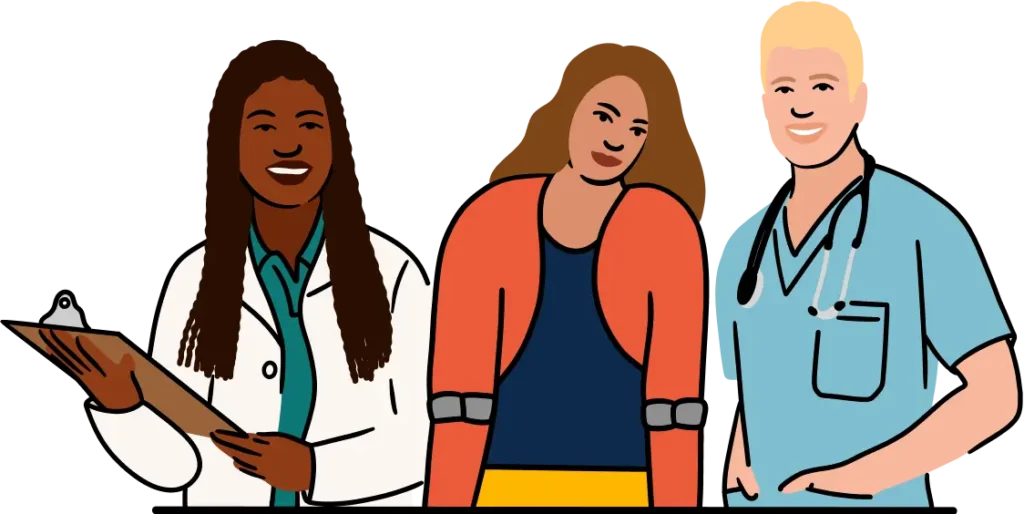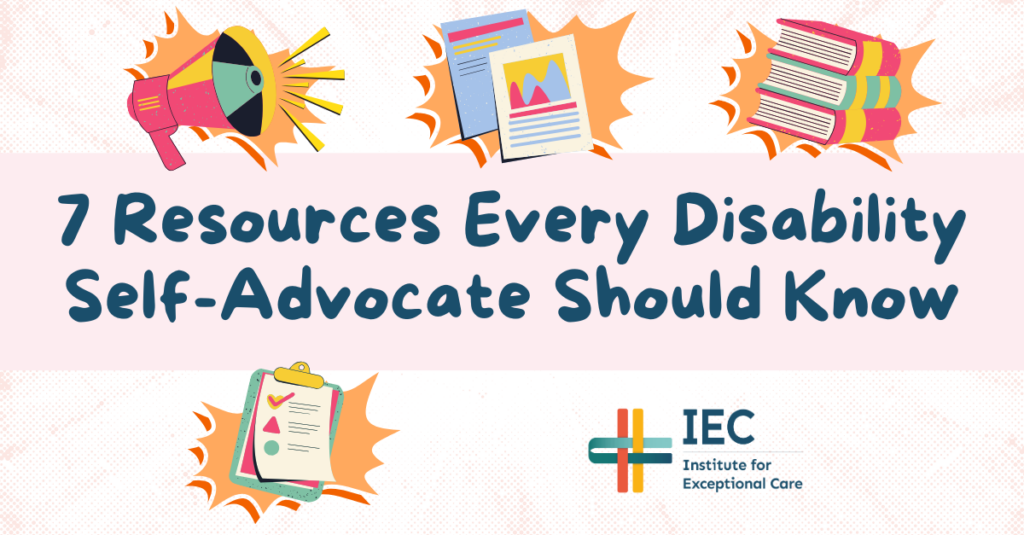
June 5, 2025
Author: Justin Gero, Communications Manager at IEC
People with intellectual and/or developmental disabilities (IDD) often face unfair barriers to getting quality healthcare. Doctors might not listen or know how to treat people with IDD. Offices might not be accessible. Visits might feel overwhelming. These challenges can make it harder to stay healthy and get the support you need.
Being a self-advocate means speaking up about your needs, asking questions, and knowing your rights. It also means having the tools to prepare for appointments, explaining what works best for you, and making informed choices about your care.
These 7 resources were made with self-advocates in mind. They help explain your rights, prepare for healthcare visits, and give you tools to lead the life that you want – and deserve.
1. Autistic Patient Bill of Rights
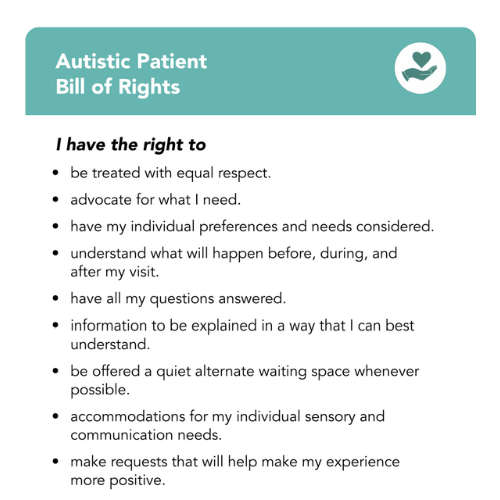
This simple handout from the Boston Medical Center explains your rights when getting healthcare. This includes your right to be treated with respect, advocate for what you need, have all your questions answered, and more.
2. A Self-Advocate’s Guide to Medicaid
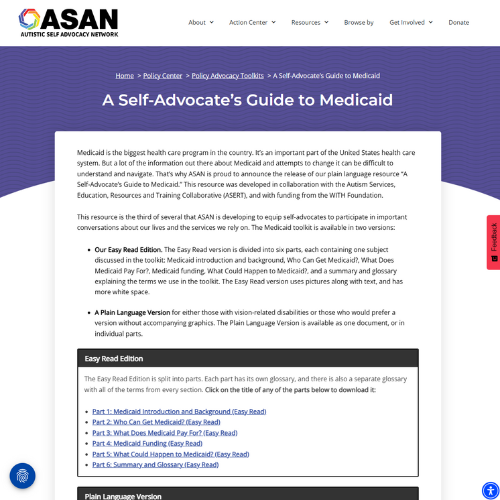
Medicaid can be confusing. That’s why this plain language guide is so helpful. It breaks down what Medicaid is, how to apply, and what you can do if you have problems.
3. Hospital Passport: About Me and My Health Needs
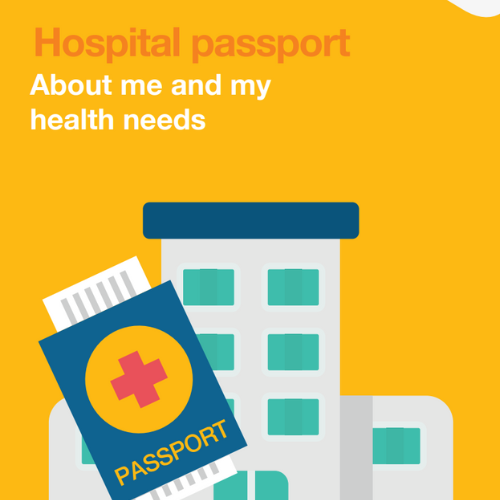
Fill out this form before you need to go to the hospital. It helps hospital staff care for you by telling them about your needs, communication style, and how they can best care for you. It’s all about making healthcare work better for you.
4. Transitioning to Adult Health Care With Confidence
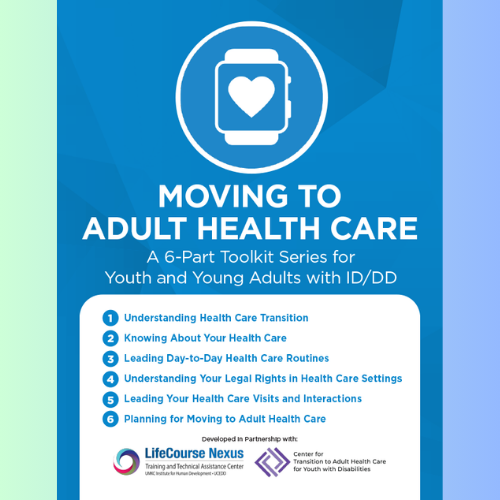
This resource helps prepare young adults with IDD to move to adult healthcare. It includes 6 toolkits that cover understanding your healthcare, legal rights, planning to move to adult care, and more.
5. Real Talk: Improving Quality of Sexual Health Care for Patients with Disabilities
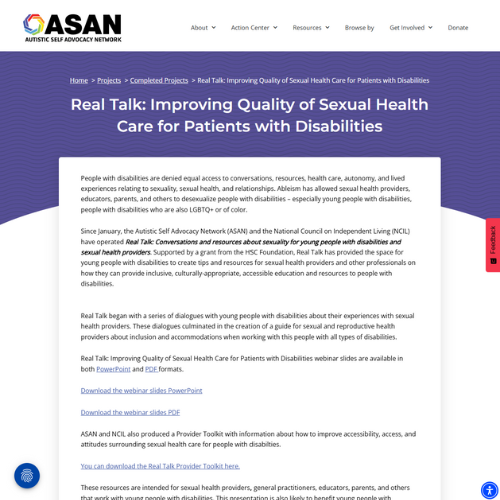
People with disabilities are often denied equal access to conversations, resources, and healthcare about sexual health and relationships. This resource can help you understand your rights and help make sexual health education more accessible.
6. Understanding Accommodations: Disability Accommodations in Healthcare
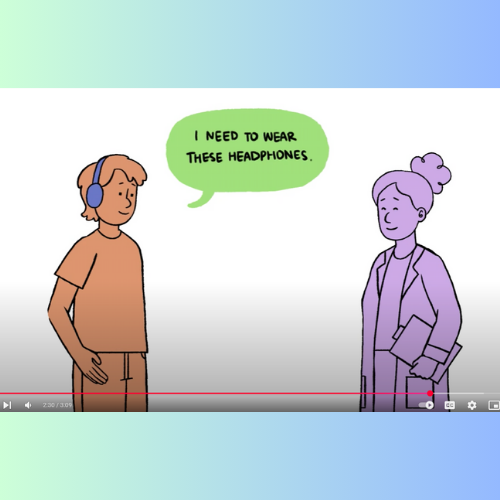
This video from Stanford University EdTech explores disability accommodations in healthcare. The goal is to empower you to advocate for yourself or support others to create more accessible, inclusive environments.
7. Art of Advocacy
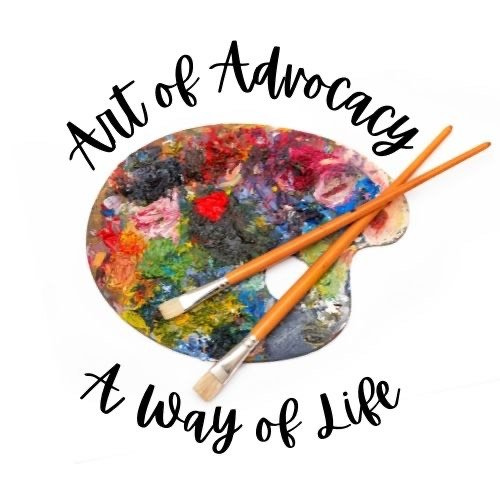
Art of Advocacy aims to teach and inspire people with IDD, families, and allies to become more effective advocates. Learn how to tell your story to make a difference in your community.
Want More Resources?
This is just a small selection of the dozens of resources compiled by IEC’s IDD Advocate Corps. You can find the full resource guide here:



